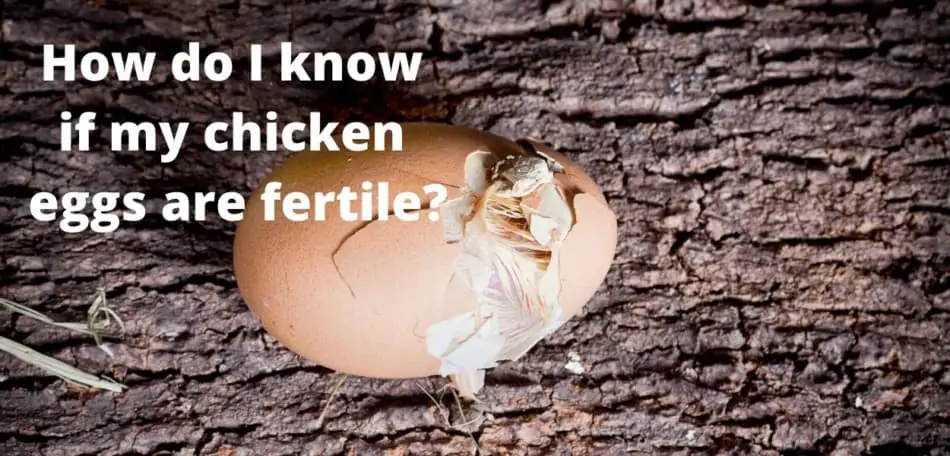If you are getting into the swing of things when it comes to keeping backyard chickens, you may be considering whether or not your supply of eggs is fertile. The fertility of eggs is a topic that is often shrouded in myths, rumor, and speculation.
Let’s blow off the cobwebs and get some daylight on this subject by addressing the key points and equipping you with the knowledge you need to know if your chicken eggs are fertile.
Need a good book to read? We recommend two:
Beginners Guide to keeping Chickens – Amazon
A kids guide to keeping Chickens – Amazon
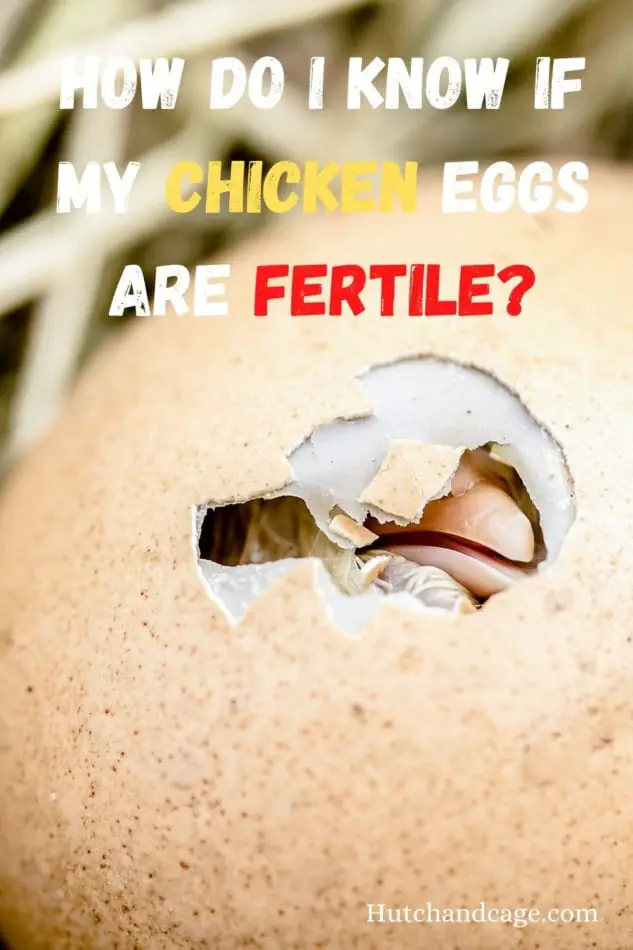
Table of Contents
What is a fertile chicken egg?
A fertile chicken egg is simply one that has been fertilized by male sperm from a rooster. This means that the egg will contain both male and female genetic material and excitingly, has the potential to give rise to a chick.
Fertile eggs and infertile eggs look the same to the naked eye. Within the egg the male and female genetic material will have combined to form a near imperceptible whitish spot called a blastoderm, that can, under the right conditions develop into a chick.
Without ongoing development, a fertile hen’s egg is no different to a regular egg out of the box.
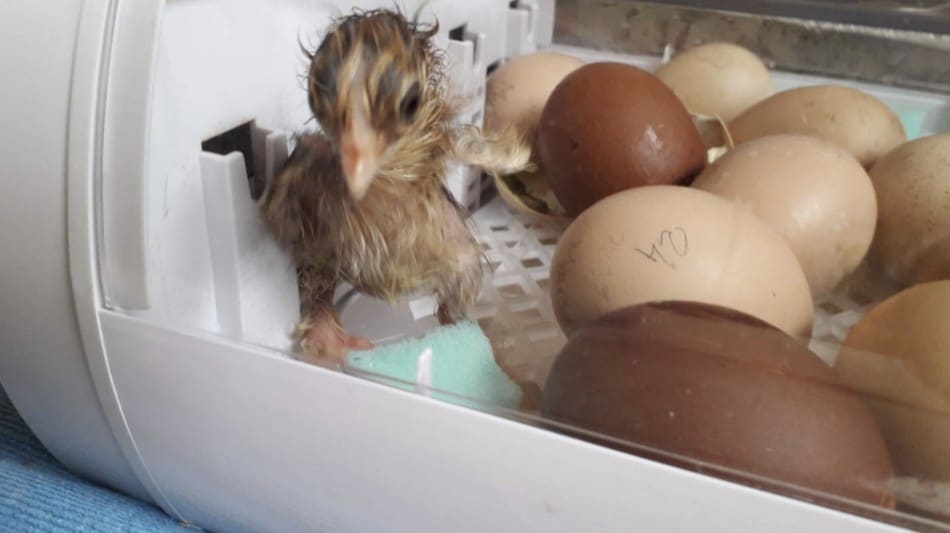
Why do you need fertile eggs?
Which came first, the chicken or the egg? If you can answer this you will understand the need for fertile eggs that can develop and hatch into chicks. Fertile eggs are key to breeding further chickens and allow you to expand your flock, or hatch and rear chicks of a specific breed for sale.
The one way you can be sure your eggs are definitely not fertile!
For one of your hens to produce fertile eggs, she would need to have been mated by a rooster. That is the only way in which sperm will reach a developing egg within the chicken before it is laid. No rooster, no fertile eggs.
Most store-bought eggs are from hens that have not been exposed to a cockerel meaning you can be confident that they won’t ever hatch.
If you have a rooster ranging your hens, anything is possible. Typically roosters will mount and mate particular favorite hens and follow them around your yard. That being said, any hen could have been fertilized when there is a cockerel around.

No hard and fast rules
Even with cockerels on the block, your eggs may not be fertilized. Even with active mating, sperm and egg may not meet at the right stage of the egg’s formation for fertilization to occur. A rooster can also be infertile too.
Can you eat fertile eggs?
Without ongoing development, a fertile egg remains in relative dormancy and can be used, prepared, and eaten much like your store-bought sterile eggs.
A cracked sterile egg still has the same yoke and white that you expect and it is highly unlikely that you would encounter any substantial trace of a developing chick.
There is some anecdotal evidence that fertile eggs spoil sooner than sterile eggs but no significant differences have been encountered.
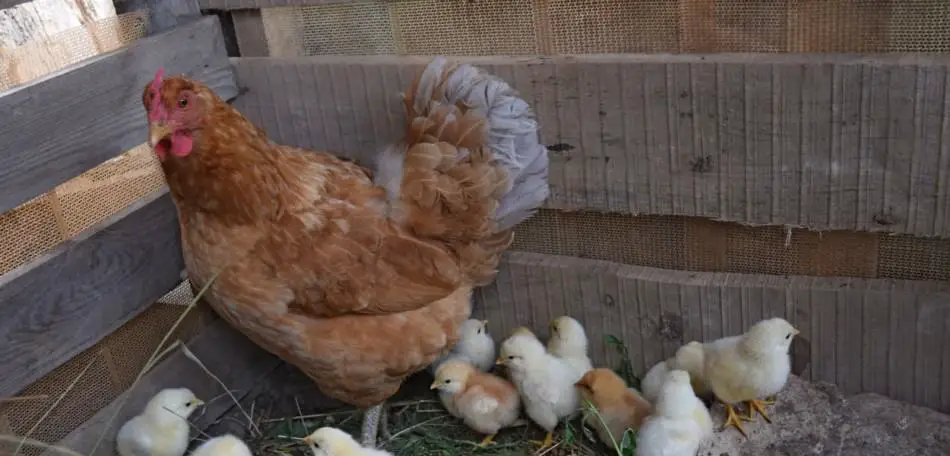
How to find out if an egg is fertile?
If you are looking to expand your flock and have a rooster around or have received some fertile eggs from a fellow hen keeper, you need a reliable way of establishing if an egg is viable for hatching a chick.
There are plenty of old wives tales about checking an egg’s fertility, but here we share methods that should help save some of the time and energy of attempting to hatch sterile eggs.
Candling an egg
You can monitor eggs for signs of embryonic development by candling the egg. This is done by holding up your egg and shining a bright light on the egg to see the structures within. Here are some features you may see in candled fertile eggs:
- Blood vessels.
- Opaque shadow of the embryonic chick.
- Movement within the egg of development has progressed.
Float your eggs
If your fertile egg has started the process of developing into a chick its contents will be denser than a sterile egg. When placed on water, a fertile, developing egg may sink.
Looking for an amazing Chicken coop? Click here to see our recommended backyard chicken coops!
Crack one and see
Clearly, you will lose any developing embryo, but cracking an egg can provide a reliable indication that your rooster is fertile and doing his job. Simply crack your egg into a bowl and look for:
- A 2mm white target shaped cluster of cells on the yolk.
- Blood vessels may also be present.
It is best to candle the egg on day one after it has been laid and every two to three days until just over a week has passed. If no changes have taken place it is unlikely to be viable and should be thrown out in case of spoilage.
Hatching a fertilized egg – your next steps
If you want to hatch a fertile egg you will need to incubate it so that the embryonic chick has the correct temperature conditions to remain alive and grow.
Fertile chicken eggs take 21 days to hatch and require a consistent environment. a prolonged rise or fall in temperature of only a few degrees can curtail development.
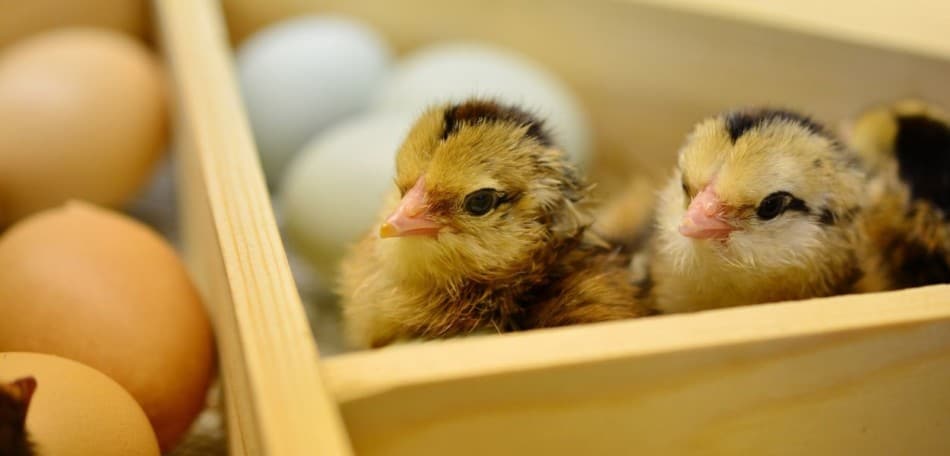
Here are your options for successfully incubating an egg:
- A broody hen. Nature still works well enough for one of your hens to do the job of faithfully sitting on and tending to your fertile eggs. They can become dry protective, so be prepared to distract your girl with food and water while you make your checks.
- Homemade hacks like a Styrofoam cart, heat lamp and thermometer can do the job but will need to maintain a temperature of and humidity for success
- Incubators of any size can be purchased to do the work of maintaining optimal conditions for hatching your eggs successfully. They are a convenient option for people who are keeping chickens at home.
In conclusion: How do I know if my chicken eggs are fertile?
If you have a rooster around or are looking to raise chickens you will keep at home, the issue of fertile eggs will always be on the agenda.
We hope we have equipped you with the basics, so you are set to handle this essential part of life with chickens.
Do you have any tips or tricks for dealing with fertile eggs? Share your comments below. We would love to hear your thoughts.

